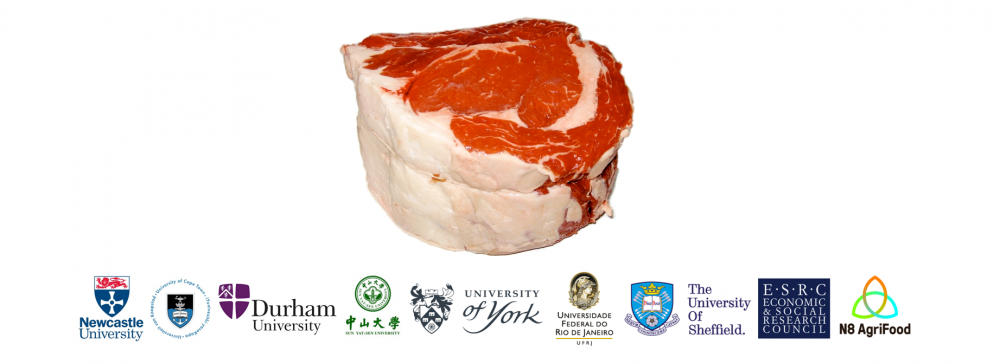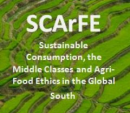Overview:
SCArFEthics is a two-year international and interdisciplinary research project investigating sustainable consumption and agri-food ethics. Commencing in June 2018, the focus of the project is on the food knowledges, beliefs, practices and experiences of the new middle-classes in Brazil, China, and South Africa. We are currently a team of twenty working at seven universities in four countries on four continents across three case studies. The project is funded by the ESRC and supported by the N8.
Some Blurb:
Sustainable food consumption spaces and practices in the global South are of critical importance yet remain under researched and poorly understood because most studies assume that ethical consumers are situated in the global North. Expanding middle class consumption in global South countries is seen simultaneously as providing a potential stimulus to global economic growth and a threat to environmental sustainability. The UN’s Sustainable Development Goal 12 (Ensure Sustainable Consumption and Production) recognises the need to support developing countries in strengthening their technological capacity to enable more sustainable patterns of consumption, to promote sustainable public procurement practices, and to ensure that consumers have the relevant information and awareness for sustainable lifestyles. In response, this research evaluates the mobilisation and practice of sustainable consumption in the global South through an examination of systems of food provision and regulation, everyday consumer habits, and trends and fashions in food consumption. It draws on case study research in Brazil, China, and South Africa, where there is robust evidence of large and growing middle classes.
The research is essential to understand how sustainable food consumption is mobilised and practised in distinct global South contexts, how this might be affected during times of increasing political instability and social precarity, and how this relates to the wider context of global population growth and globalising consumerism. Pilot research in the case study countries suggests that digital technologies are increasingly interwoven into societies and food systems as follows: consumers share, receive information about, purchase and review food online; food retail companies optimise their distribution with the help of IT technology; and state procurement systems increasingly move online. Recognising these realities, the research provides an innovative investigation of the interconnectedness of online and offline spaces of sustainable food consumption in the global South.
The research is organised into four phases. The first focuses on institutional and cultural drivers of sustainable food consumption. It analyses policy and media reports, business strategies, codes, campaigns and initiatives in the policy and popular domain. Key informant interviews are conducted with government departments responsible for food procurement and standards, campaigners, and leading food retailers, wholesalers and restaurateurs. The second phase, focusing on consumer habits and everyday trends, comprises ethnographic research in middle-class residential areas of Guangzhou, Rio de Janeiro and Johannesburg. Interviews address household food consumption practices, judgments about ‘good’ food, and popular influences on food ethics and environmental values. Digital ethnographies examine the online practices of consumers, including how they collect information, shop or review online, and the influence of social media on ethical judgment and creating markets for sustainable foods. Accompanied shopping interviews and co-cooking sessions capture the nuances of food choices, moral judgments, engagement with government and corporate ethical initiatives, and the ordinary ethics of food purchase and use. The third phase, focusing on fashion and trends, uses text mining of social media to trace lines of influence in sustainable food consumption. To widen the reach of the research, and provide material with traction with policy and commercial actors, the final phase gathers quantitative data through a web-based survey of the drivers of sustainable food consumption and the behavioural intentions arising from these. The research is an innovative analysis of different global South contexts in which shifts towards sustainable food consumption are likely to have global impact. The three case studies offer comparisons of the potential of different drivers of food sustainability.

